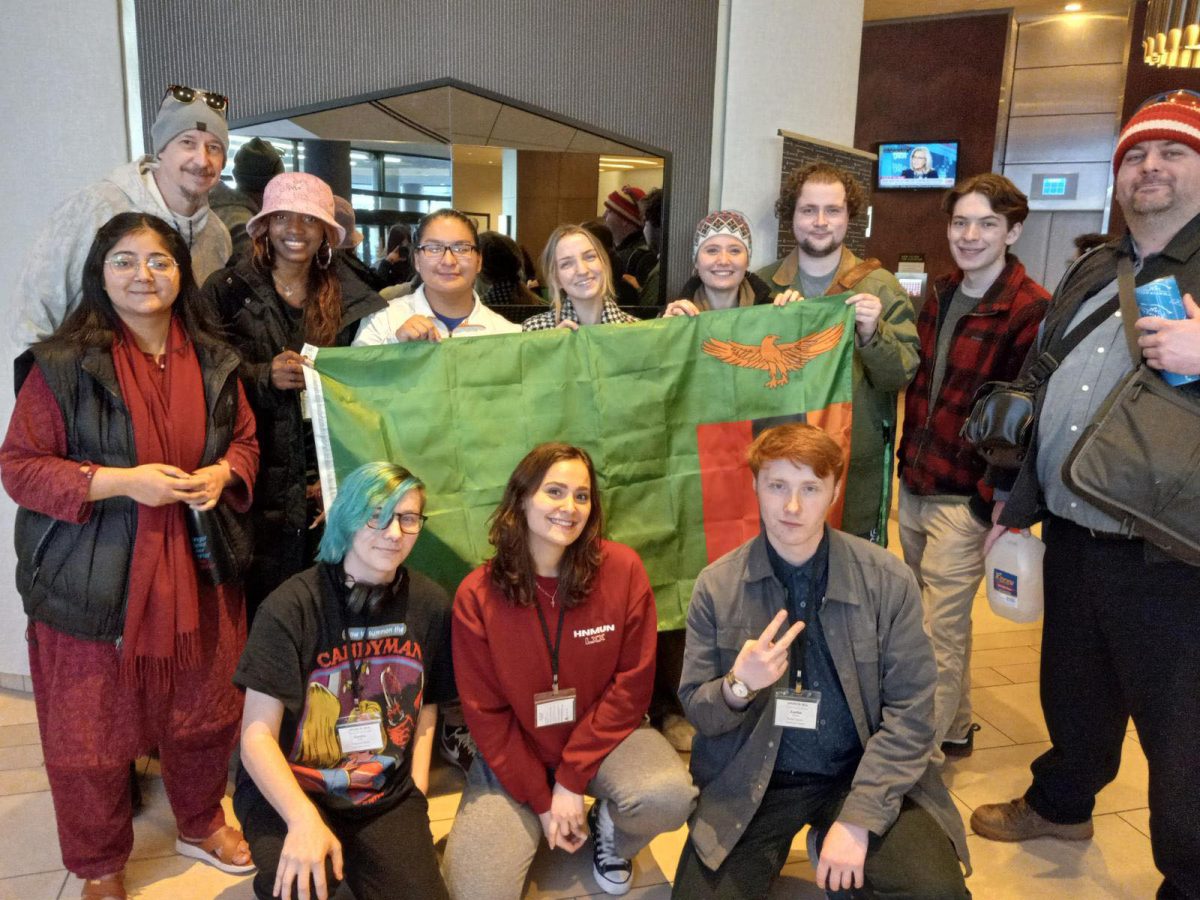We live in a world where people do not always stop to consider what is going into their mouths. Most of the food we eat has been transported from thousands of miles away or from factories that don’t really care about their customer’s health. Mari Omland and Laura Olsen of Green Mountain Girls Farm are making an effort to change the way we see food and the people who provide it.
The couple previously lived in Washington, D.C., where both had been working in non-profit organizations focusing on conservation and environmental issues. They decided four years ago that they wanted to move back to Vermont and take their ideals a step further.
“We were very keen to make a contribution to the community and to the planet,” said Omland. Both women are avid conservationists, community minded, and had an entrepreneurial itch inside them that they just had to scratch.
They were not originally intent on farming, but soon decided it was the way to go. “We felt it was one of the best contributions we could make to help reverse climate change, conserve ways of life and the natural systems we care about,” said Omland. The two found a property in Northfield that inspired them to do just that.
For that first summer, the women experimented, growing and raising food only for personal consumption and giving it as gifts. Then, two and a half years ago, they opened with their new name, Green Mountain Girls Farm and began a community-supported agriculture enterprise.
A CSA is a way for members of a community to buy healthy, fresh food straight from the farmer. Usually, members of a CSA purchase a share at the beginning of the summer. They then receive a box of offered farm products every week throughout the farming season.
Green Mountain Girls Farm does things a little differently, however. For one thing, they call their CSA the Omnivore’s Farm Share.
“It sounds nicer, and we like the concept of sharing,” said Omland. They want to share the farm, the food, and the experience with their community. However, they don’t want to lose that concept of a CSA. “Our farm is absolutely community supported. Families that have bought in make it possible for us to experiment with the system, and prove that a person can run a viable Vermont farm in the 21st century.”
The name isn’t the only thing that sets the Omnivore’s Farm Share apart from other CSAs. Instead of having options only in the summer, the Green Mountain Girls offer their products year round. They use two 2500-square foot hoop houses to grow hardy greens like spinach, chard, kale, and a variety of Asian greens throughout the winter.
Meat is always available, and of course, it is “happy” meat. Green Mountain Girls raises all its meat to conform to a very high standard.
“The animals don’t just stay in a barn being fed on grain for their entire lives. They get to see the sunshine and are rotated regularly around the pastures,” explained Omland.
Olsen, who was a vegetarian for 22 years, now feels comfortable eating her own meat. “I decided it was better for the world to eat meat that was raised in Vermont well and sustainably than getting my protein from soy raised unsustainably and shipped across the world,” she said.
Green Mountain Girls raises pigs, goats, chickens, and occasionally lambs. The animals are well-loved and most Farm Share members can pick them out by name. As member Mark Farley is fond of saying, “We knew that pig.”
Another difference between Green Mountain Girls and most other local CSAs is their free choice option. Instead paying a fee for the entire season and receiving a pre-packed box, the members of the Omnivore’s Farm Share pay monthly and pick out their own food. This free choice option, while not unique to the Green Mountain Girls, is certainly unusual. Building their model after the Essex Farm in Essex, New York, the women feel this type of farm share strengthens the community part of a CSA.
“Not everyone wants the same things,” said Omland. “And this just seemed more relational to us.”
The system is based on honor. People take what they need for the week and Green Mountain Girls trusts them to do so. Adults pay $200 per head, per month, and $100 for kids under 18.
So every week on Thursday from 4 p.m. to 7 p.m., people come to shop in the spacious garage under their barn. While more subdued in the wintertime, the options are no less tantalizing. A bowl of fresh greens, a seemingly impossible option, is set on a center table, along with baskets full of garlic, beets, and onions. Jars of pickled and preserved food line the higher shelves, identified by colorful signs. Bright orange and yellow squash are on display in the back.
The customers can get fresh eggs and goat milk from a glass-fronted fridge set in the wall. Sausages, cuts of pork, bacon, ground goat, and chickens hide behind the silver metal door of the walk in freezer.
Members have nothing but good things to say about the Green Mountain Girls Farm.
“I love it. It’s convenient, it’s local, and I get to eat good, healthy food year round,” said Bonny Gayle.
Donna Farley and her family have been a part of the Farm Share from the very beginning.
“We thought it would be a good way to make us eat more healthily,” said Farley. “We like being able to get food from right down the road, and we like that everything is so fresh. If there is something we like, we can take more of it, and if it’s something we don’t like, we don’t have to take anything.”
Non-share members can also shop on Thursdays. “My daughters are farmers, so I get a lot of produce from them,” said Alicia Pedrini. “I don’t really need enough to buy a share, but if I did join a CSA this would be the one I’d join.”
Green Mountain Girls Farm served about 200-250 customers in the past year alone. About 75-100 belong to the Farm Share.
The food isn’t the only thing that draws people in. Omland and Olsen and some of their staff are usually around, greeting customers and catching up with them.
“We like that we can go and hang out at the farm and get to know the animals, swim in the pond and those kind of fun things,” said Farley. “We’re great friends with Mari and Laura. They’re great people and they are running a wonderful business.”
Pedrini noted that visits to the farm entail more than just the purchase of excellent food. “I think I just come for the energy that’s here,” she said. “It’s a great place and they’ve done a spectacular job. It’s wonderful to have them in the community.”
The employees also love it at the farm. Liva Coe was one of the first members of the Green Mountain Girls’ staff, attracted by the sense of community offered at Green Mountain Girls.
“I really like being here and I feel really luck to work at this farm,” said Coe. “It’s a beautiful place and we’ve had all sorts of great people working here. I feel very proud of the food that we grow.”
One of the newest members of the small staff at Green Mountain Girls Farm, Tessa Bussiere, can’t get enough.
“It’s like a family,” Bussiere said. “I’m emotionally invested. I live an hour away now, but I still come to work two days a week. I could have found a job closer, but I love it here.”
Olmland and Olsen don’t only farm food. They farm relationships, whether it is the relationship between their soil and the food it produces, or the relationships they have among the community.
“We want farmers to be thriving, we want to be profitable, we want to produce high quality goods, we want our community to be engaged, and we want the natural systems we are living in to be functioning well,” said Omland.
“I see farming and the local food movement as one of the biggest environmental and community issues coming up in the next several decades,” said Olsen. “It’s very exciting to be a part of that.”





